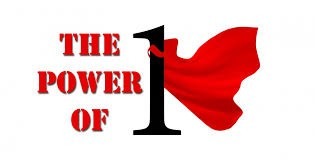Parshas Bechukosai
He Turned On The Faucet But Nothing Came Out!
“If you follow My statutes and keep My commandments and you will fulfill them.” (Vayikra 26:3)
Rabbi Yaakov Galinsky zt”l said a beautiful moshol: The Bedouins lived in the desert, far from civilization. They had to travel far to get water from wells. Once, some of the Bedouins traveled to the city. They were astounded that the city dwellers did not have to travel far to get water. All they had to do was to open the faucet and water came out. The Bedouins had the “brilliant” idea to purchase faucets which they would place in all their tents. When they returned to the desert, they excitedly told their friends that they brought a wonderous way of getting water. They would no longer have to go far to get the water, it would be right there, in their tents. They installed the faucets and turned them on. Nothing happened! No water came out. They were very distraught. They sent a message to the plumber from the city to quickly come. When the plumber arrived and saw the problem, he started laughing. He said that water does not come from the faucets alone. The faucets had to be connected to long pipes which were connected to a well, a source of water.
Rabbi Galinsky zt”l said that the Torah promises great blessings to those who toil in learning Torah and to those who fulfill the mitzvos. The Torah is the source, the “well”, for all those blessings. If someone is not connected to the “well”, how can he expect to get all those blessings?
The Torah (Vayikra 26:3-8) says,” If you follow My statutes and keep My commandments and you will fulfill them…”, then you will receive a multitude of physical blessings, besides spiritual reward. It will rain in the proper time, the earth shall give forth its produce…, you will feel satiated from eating, you will live securely in your land, there will be peace in the land, you will sleep without fear, no sword shall pass through your land, and you will pursue your enemies who will fall before you by the sword….
Rashi explains that “keeping My commandments” refers to fulfilling the mitzvos. What does “following My statutes” refer to? Rashi says that it means one should toil in learning Torah, with the intention of fulfilling the mitzvos. If one does not toil in learning Torah, G-D forbid, it could lead to a chain reaction of devastating results. He may not properly understand how to properly fulfill the mitzvos. That can lead to despising others who fulfill the mitzvos, hating the chachamim, preventing others from fulfilling the mitzvos, denying the mitzvos, and, eventually, denying Hashem.
The Talmud (Sanhedrin 94B) records the story about Sancherev, king of Assyria, who was in the process of conquering the world. He conquered heavily fortified cities. The Jewish king, Chizkiyahu realized the great danger to the Jewish People. How could the Jews protect themselves? King Chizkiyahu, aware of the blessings recorded in Parshas Bechukosai felt that the merit of learning Torah with intensity, would save the Jews. The Jewish people understood the message. Through their efforts, every Jew; man, woman, and child, became well-versed in Torah. The Talmud quotes Rabbi Yitzḥak Nappaḥa who said that the yoke of Sancherev was destroyed due to the oil of Chizkiyahu that would burn in the synagogues and study halls when the Jewish people were engaged in Torah study at night. Chidushei Agados says that an open miracle occurred, and an angel killed 186,000 of Sancherev’s soldiers. Then Sancherev fled.
Pirkei Avos (2:8) quotes Rabbi Yochanan ben Zakai who received [the oral tradition] from Hillel and Shammai. He used to say, “If you have learned much Torah, do not claim credit for yourself, because that is why you were you created”. The Talmud (Shabbos 88A) says that Hashem established a condition with the act of Creation that if Bnei Yisroel would accept the Torah on the sixth day of Sivan, the World would exist. If they would not accept it, the World would revert to the primordial state of chaos and disorder. Therefore, the earth was “afraid” lest it be returned to a state of chaos. Once the Jewish people accepted the Torah, the earth was “calmed”.
Rabbi Eliyahu Dessler zt”l (Michtav Me’eliyahu) says that when you toil at something, you come to feel an attachment to it, a love for it. For example, if you work hard to plant a tree, water it, prune it, etc., you feel an attachment to it. When you toil in Torah, you develop a love of Torah. That makes you feel that the Torah is a part of you.
The Chofetz Chaim zt”l says that everyone is obligated to toil in Torah according to his own ability.
Furthermore, toil in Torah is a mitzvah in and of itself, for which one receives reward. The Talmud (Brachos 28B) says that upon leaving the beis midrash where he learned Torah, Rabbi Nechunia ben Hakana said a prayer. “I give thanks before You, Hashem, that You have placed my lot among those who sit in the study hall, and that you have not given me my portion among those who sit idly on street corners. I rise early, and they rise early. I rise early to pursue matters of Torah, and they rise early to pursue frivolous matters. I toil and they toil. I toil and receive a reward, and they toil and do not receive a reward….” The Chofetz Chaim zt”l asks, what does it mean that others toil and do not receive a reward? For example, wouldn’t a tailor who fixed a suit get paid for the job? The Chofetz Chaim zt”l answers that the difference is in the effort. If a tailor works hard but does not sew a suit properly, he will not get paid for his effort. He gets paid only if he produces the required results. However, Hashem handsomely rewards one for his effort in learning Torah. One who tries hard to understand a portion of the Torah yet does not understand it will still be greatly rewarded!
(dvar Torah based largely on Yalkut Lekach Tov by Yaakov Yisroel Beyfus)
We are approaching the Holiday of Shavuos, when we received the Torah. It is important to remember that we were created for the purpose of learning Torah and performing mitzvos. Our acceptance of the Torah ensured the continuation of the Creation of the World! We are obligated to work hard and toil in our Torah learning. Hashem promises us numerous blessings for that. It is important to remember that Hashem greatly values our efforts in learning Torah.













